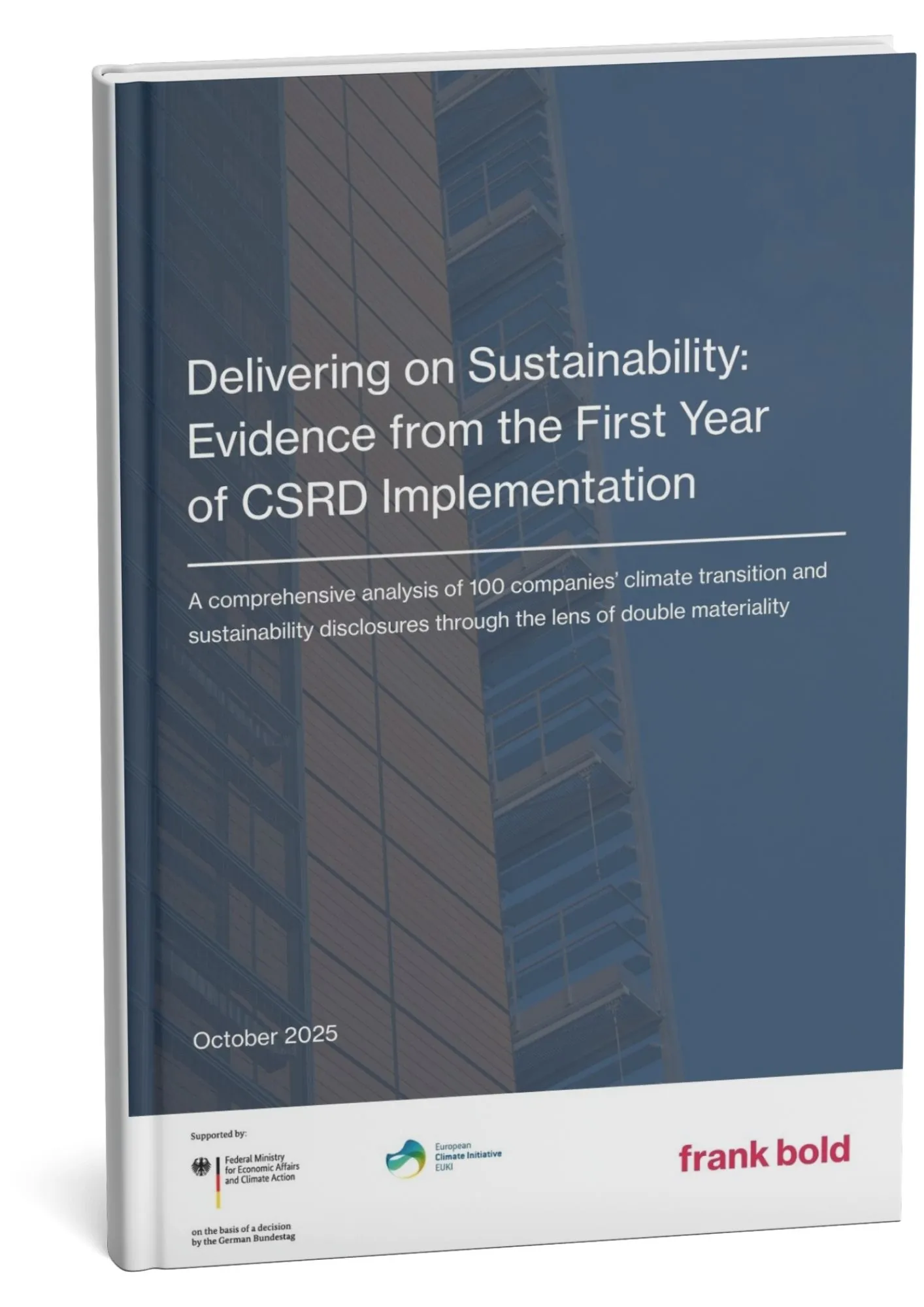Slovak Tatra banka, a member of the Raiffeisen Bank International Group, has become a pioneer in the field of regulated sustainability reporting in our region. Its newly published document relies on visual simplicity, yet delivers highly detailed content that can serve as inspiration for other companies as well.
.webp)
When preparing the report, Tatra banka chose an approach based on internal workshops. The double materiality analysis was carried out separately for the bank’s own operations and for the value chain, including the financed portfolio. This procedure was intended to ensure that all key impacts, risks, and opportunities were identified. The results were subsequently approved by the bank’s management.
For assessing impacts and risks in its own operations, the bank used a four-point scale and set the materiality threshold at two-thirds of the average score achieved. In the case of the financed portfolio, it applied the international UNEP FI Impact Analysis Tool, which enables financial institutions to screen sectors and companies based on their significance and the volume of funds provided.
Just like some leading European companies, Tatra banka has incorporated sustainability goals into its management remuneration system. In its report, it met the requirements of the ESRS GOV-1 standard and provided a detailed description of the involvement of individual departments in the ESG agenda. This detailed perspective can serve as a valuable guide for other institutions facing a similar task.
.webp)
As part of its ESG risk management policy, a climate transition plan has also been developed. In it, Tatra Banka has set an ambitious goal – to reduce emissions in its non-retail financed portfolio by 22% by 2030 compared to 2023. This step is crucial, as financed emissions account for 99.7% of the bank’s total carbon footprint.
Tatra banka also places great emphasis on the area of consumers and end users. In the section of the report dedicated to the ESRS S4 standard, it provides detailed information on policies, measures, and objectives for individual subtopics. This chapter also includes the issue of cybersecurity, where the focus is primarily on protecting clients’ rights.
.webp)
We will bring you details about the approach of other companies soon – the full analysis, which already covers the Swiss Coca-Cola holding and the Danish energy company Ørsted that we looked at last time, as well as Slovakia’s Tatra Banka and the Dutch company ASM, is now available on the Ekonews platform.
At Frank Bold Advisory, we help you navigate the current requirements of the European CSRD directive as well as the ongoing changes brought by the so-called Omnibus regulation. We guide you through the preparation of an effective ESG report in line with ESRS standards – whether you're just starting out or looking to improve existing processes.
We work with both major market players and smaller companies within supply chains – from initial analysis and selection of key indicators to final reporting.

Discover how European companies are managing ESG reporting. The new study by Frank Bold’s Responsible Companies team summarizes the first wave of sustainability reports from one hundred major European companies and shows that reporting under the CSRD provides valuable data for decision-making and is becoming an effective tool for risk management. Publication is part of the European Climate Initiative (EUKI) of the German Federal Ministry for Economic Affairs and Climate Action (BMWK).

Comprehensive Sustainability Report aligned with CSRD.
.webp)
A simplified ESG report for your business partners.

Mapped according to GHG Protocol Product Standard.

We are part of the Frank Bold Expert Group
Copyright ©
Aktuální rok script
Frank Bold